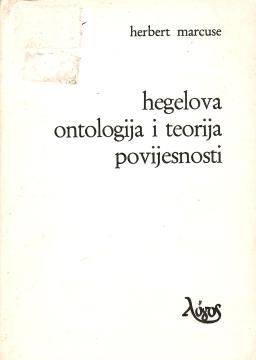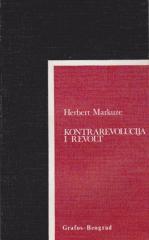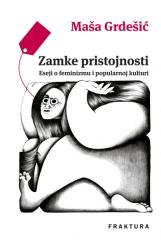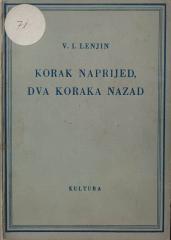
Hegelova ontologija i teorija povijesnosti
In this work, Marcuse deals with the interpretation of Hegel's philosophy through the prism of ontology and historicity, trying to connect it with questions that were relevant to existentialism and phenomenology in the interwar period.
In Hegel's Ontology and Theory of Historicity, Marcuse successfully connects Hegel's philosophy with a critical theory of society, developing an ontological and historical basis for understanding the possibility of human freedom within historical development. This work represents one of the first steps in his career, laying the foundations for his later critique of modern capitalism and consumer society, and paving the way for his later works such as "One-Dimensional Man" and "Eros and Civilization".
In his interpretation of Hegel, Marcuse emphasizes the ontological structure of battle (Sein). According to Hegel, being is not a static category, but develops dialectically through processes of becoming and change. Marcuse understands this as the basis for understanding human existence within social and historical conditions. For Marcuse, ontology is not only a matter of abstract philosophical speculation, but has immediate significance for understanding the social relations that shape human existence.
Marcuse uses Hegel's dialectic to develop his theory of historicity, a concept that embraces historical processes as key to the formation of human consciousness and social structures. According to Marcuse, historicity is not only a series of events, but a process through which freedom and awareness of the possibility of transforming society is achieved. Historical development, according to Hegel and Marcuse, does not happen automatically, but through conflicts (so-called negativity) that lead to a new level of understanding and freedom.
Negativity is a key concept in Marcuse's interpretation of Hegel. Negativity means the ability to negate existing social structures and conditions, which allows room for change and transformation. In his interpretation, Marcuse uses Hegel's concept of dialectical negation as a means of understanding how historical processes develop through conflict and contradiction. According to Marcuse, this process is not mere destruction, but a creative act that leads to liberation.
Marcuse also relies on Heidegger's existential analysis, but combines it with Hegel's dialectical approach, emphasizing the social context and historical conditions of human existence. While Heidegger emphasizes authenticity and individuality, Marcuse believes that true freedom can only be achieved through the transformation of social structures that limit the individual. For Marcuse, critical theory is necessary to analyze and understand the social relations that shape human existence.
Marcuse's work on Hegel is deeply directed towards the possibility of social change. Marcuse interprets Hegel's dialectic of freedom as a call to action: an individual can achieve freedom through participation in the historical process that leads to the abolition of alienating social structures. In this way, Marcuse's theory is not only an academic analysis but a politically engaged philosophy that advocates emancipation.
One copy is available





